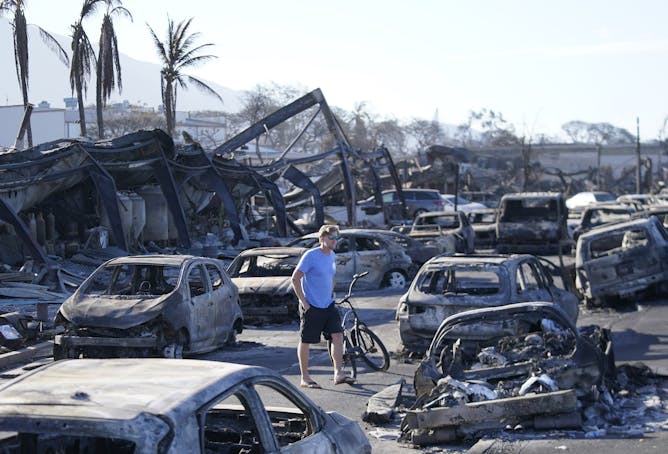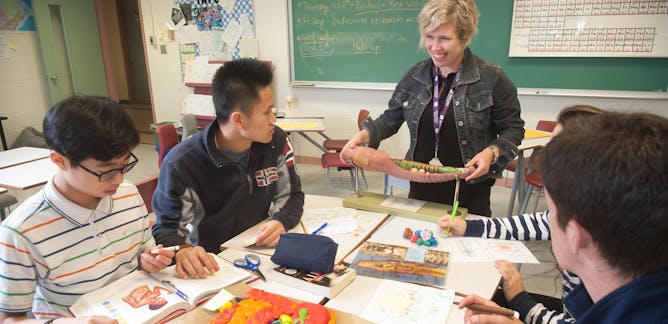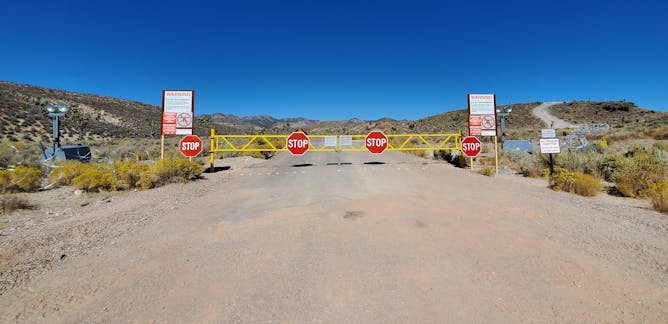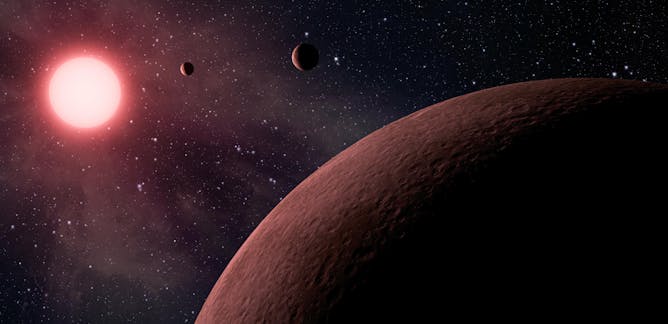|
|
|
|
It’s been heartbreaking to follow the news of last week’s devastating wildfire in Maui. As recovery efforts continue, Purdue University environmental engineer Andrew J. Whelton explains the many public health hazards that follow wildfires. These include the release of toxic gases and particles, as well as harmful chemicals that can affect drinking water and wildlife. “Cleanup and recovery from a disaster of this magnitude takes years,” he writes.
As with many of our stories on food and nutrition, this one on “functional” foods was widely read and provides more nuance on the role of food in health. Nutrition and food science professor Janet Colson explains how certain foods, such as apples, carrots and peppers, contain bioactive substances that bring particular health benefits. Researchers are getting a better understanding of what those bioactive components are and the various health benefits they
provide, she writes.
A panel of experts from the U.S. Preventive Services Task Force recently updated its guidelines on skin cancer screening, concluding that there isn’t enough evidence to recommend annual exams of adults and adolescents by a clinician. But catching signs of skin cancer early remains crucial. Dermatology experts from the University of Colorado Anschutz Medical Campus offer a guide on what individuals can do, without visiting a professional, to lower the risk of skin
cancer. One tip that I may well start following: Check the local UV index, where 2 is considered safest and 11 represents extreme danger.
Also in this week’s science news:
If there’s a subject you’d like our team of science editors to investigate, please reply to this email.
|

|
Martin LaMonica
Director of Editorial Projects and Newsletters
|
|

Fire sites like Lahaina, where residents were allowed in on Aug. 11, 2023, are filled with hazards, both obvious and unseen.
AP Photo/Rick Bowmer
Andrew J. Whelton, Purdue University
Maui County issued an ‘unsafe water’ alert and urged precautions. Residents can face several toxic hazards from fires, as an expert in the chemical risks from fires explains.
|

While apples aren’t considered a superfood, they are considered a functional food.
Caterina Oltean/500px Prime via Getty Images
Janet Colson, Middle Tennessee State University
Functional foods − which should not be confused with ‘superfoods’ − possess specific components that contribute to better health.
|

A history of sunburns may put people at greater risk of developing skin cancer.
dnberty/iStock via Getty Images Plus
Enrique Torchia, University of Colorado Anschutz Medical Campus; Neil Box, University of Colorado Anschutz Medical Campus; Tamara Terzian, University of Colorado Anschutz Medical Campus
Widespread screening for skin cancer may not be necessary, but it is important to understand the risks behind UV overexposure and to get checked early if you have concerns.
|
|
|

Isabel Gauthier, Vanderbilt University; Jason Chow, Vanderbilt University
The idea that each person has a particular learning style is a persistent myth in education. But new research provides more evidence that you won’t learn better in one modality than another.
| |

Steven Berkowitz, University of Colorado Anschutz Medical Campus
Millions of young people in the US are suffering, whether from abuse at home, pressure from social media or exposure to violence. But navigating the mental health care system can be disheartening.
|

Christopher Nichols, The Ohio State University
You’re not allowed to visit the part of Nevada known as Area 51. That’s because it’s a top-secret government facility. But the secrecy has to do with spy planes, not space aliens.
| |

Jay L. Zagorsky, Boston University
With commercial space tourism on the rise and NASA planning to return to the Moon, you might think the US space economy is booming – but the data paint a more complex picture.
|
|
|
|
|
-
Amber Polk, Florida International University
The case hinged on Montana’s ‘green amendment,’ which guarantees a constitutional right to ‘a clean and healthful environment.’ Other states have similar amendments, and more are considering them.
-
Tara S. Carpenter, University of Maryland, Baltimore County
A chemist explains how the structure of your hair follicles, your genetic code and environmental factors like humidity influence how hair behaves on a day-to-day basis.
-
Mike Shriberg, University of Michigan
A pipeline that has carried Canadian oil and gas across Wisconsin and Michigan for 70 years has become a symbol of fossil fuel politics and a test of local regulatory power.
-
Kevin Hamilton, University of Hawaii
Projections for Hawaii’s climate future are raising concerns about fire risk, ecosystems and freshwater supplies for homes and agriculture.
|
|
|
|
|
| | |
| | |
| |
| |

|
| |
| |
| |
| |
| |
| |
|
|
|
